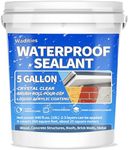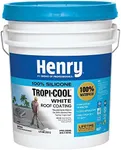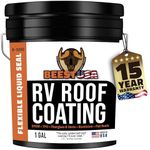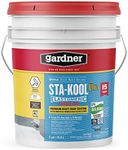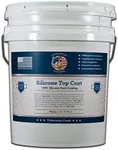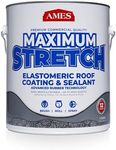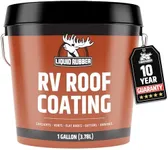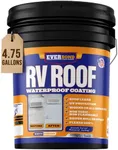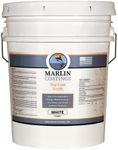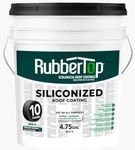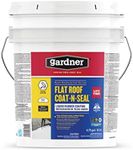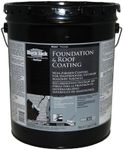Buying Guide for the Best Mobile Home Roof Coatings
Choosing the right mobile home roof coating is essential for protecting your home from the elements, extending the life of your roof, and improving energy efficiency. When selecting a roof coating, it's important to consider factors such as the type of coating, its durability, ease of application, and the specific needs of your mobile home. Understanding the key specifications will help you make an informed decision that best suits your requirements.Type of CoatingThe type of coating refers to the material composition of the roof coating. Common types include acrylic, silicone, and elastomeric coatings. Acrylic coatings are water-based and provide good UV protection and reflectivity, making them ideal for areas with moderate weather conditions. Silicone coatings are highly durable and resistant to ponding water, making them suitable for regions with heavy rainfall. Elastomeric coatings are flexible and can expand and contract with temperature changes, providing excellent protection against leaks and cracks. Choose the type of coating based on your local climate and the specific needs of your roof.
DurabilityDurability refers to how long the roof coating will last and how well it can withstand various weather conditions. A more durable coating will provide longer-lasting protection and reduce the need for frequent reapplications. Durability can be influenced by the type of coating, the thickness of the application, and the quality of the product. For areas with harsh weather conditions, such as extreme heat, heavy rain, or snow, opt for a coating with higher durability to ensure your roof remains protected over time.
ReflectivityReflectivity measures how well the roof coating can reflect sunlight and reduce heat absorption. High reflectivity can help lower your home's interior temperature, reduce energy costs, and extend the life of your roof by minimizing thermal stress. Reflectivity is usually expressed as a percentage, with higher values indicating better performance. If you live in a hot climate, choosing a coating with high reflectivity can significantly improve your home's energy efficiency and comfort.
Ease of ApplicationEase of application refers to how simple and straightforward it is to apply the roof coating. Some coatings require professional installation, while others can be applied by homeowners with basic tools and skills. Consider the application process, including surface preparation, drying time, and the number of coats required. If you prefer a DIY approach, look for coatings that are easy to apply and come with clear instructions. For more complex applications, it may be worth hiring a professional to ensure the coating is applied correctly.
FlexibilityFlexibility refers to the coating's ability to expand and contract with temperature changes without cracking or peeling. This is particularly important for mobile homes, which can experience significant temperature fluctuations. Flexible coatings, such as elastomeric coatings, can accommodate these changes and provide a more durable and long-lasting seal. If your mobile home is located in an area with extreme temperature variations, choosing a flexible coating will help maintain the integrity of your roof and prevent leaks.
Water ResistanceWater resistance indicates how well the roof coating can repel water and prevent leaks. This is crucial for protecting your mobile home from water damage, mold, and mildew. Silicone coatings are known for their excellent water resistance, making them ideal for areas with heavy rainfall or frequent ponding water. If your mobile home is in a region prone to wet weather, prioritize a coating with high water resistance to ensure your roof remains watertight and protected.
